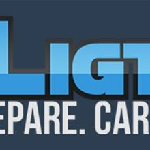
Mitigating Disaster Risks Using a Crowd Sourcing Cross Platform Mobile Apps by Gordon College CCS
Pitch
An easy to use cross platform mobile application that enables people to PREPARE, CARE, SHARE and SAVE before, during and after a disaster.
Description
Summary
The adverse effect of climate change is a global issue. Among the threats and effects are the rising seas, risk of fire and floods, stronger storms and increased storm damage. There is nothing we can do to stop disasters but we can help mitigate its impact. The “iLigtas, a cross-platform mobile application was developed in response to the Open Data Philippines call for developers to create applications that can be used to help improve local communities’ ability to identify and reduce natural disaster risks, and to better prepare for and respond to major natural disasters.
The features of iLigtas includes iHanda(iPrepare), iTulong(iHelp), iBangon(iRecover) and iSagip(iSave). The iHanda provides real-time information and emergency hotlines relevant to an arriving disaster. These information help people prepare and be ready before a disaster. With iTulong(iHelp), it provides an easy to use interface where structured data could be collected from the user needing assistance or disaster aid. Such aid would include shelter, food, medicine, first aid, construction and the like. Infographics of the needed assistance crowd sourced from the users is displayed through iBangon(iRecover). These crowd-sourced data are open data, which could be viewed by anyone, who are willing to help people in distress and or victims of the disaster. A disaster management tool shall be provided by the application through iSagip(iSave). A front-end interface is designed for the users and back-end interface for special users. This provides real-time information and reports on the status of disaster aid and distress assistance requests. Information about agencies and individuals who answered, granted and gave assistance to the requests are displayed.
Category of the action
Adaptation
What actions do you propose?
Millions of people are displaced annually because of natural or industrial disasters or social upheaval. The National Research Council (NRC, 2007) reported that reliable data on the numbers, characteristics, and locations of these populations could bolster humanitarian relief efforts and recovery programs. Further, Munich Re stated that the total reported losses from disasters are estimated at $3.8 trillion in this period with 74 percent due to extreme-weather. The rising trend in disaster losses is driven by economic development, population growth and rapid urbanization. This leaves a global challenge, how disaster risks both natural and man-made could be mitigated and reduced. Disasters and development are inexorably linked since the former can be seen as a consequence of insufficient development to reduce exposure to hazard (Collins, 2009). And while there are deficiencies in development, there will always be goals and means aiming to satisfy insufficiency. Initiatives of World Bank’s Global Facility for Disaster Reduction and Recovery (GFDRR) is driven by the central hypothesis that disaster risk is inherent to development, but that action can be taken to build resilience. The operational framework of GFDRR includes risk identification, risk reduction, preparedness, financial protection and resilient construction. These made iLigtas significant; the mobile application’s four (4) important features tackled all of the problem statements associated with GFDRR’s pillars of action. The World Bank through GFDRR in partnership with Open Government Data advocates standardization and harmonization of hazard risk management tools, methodologies, and practices. As part of their initiatives, endeavors are conducted to build communities’ resilience to natural disasters through innovative uses of information and communication technologies (ICTs). Kuriyan et.al 2011 states that many open data initiatives are based on ICT platforms such as websites, social media interactive geo-mapping, and SMS and voiced-based reporting that provide citizens better access to information and enable them to send in their complaints regarding their government’s performance and administration. Thus, in mitigating impact of disasters as well as reducing the risks, ICT platforms may as well be an efficient platform to use and implement. Since, many developing countries lack the tools, expertise and instruments to factor the potential impacts of adverse events in investment decisions, iLigtas could effectively address these issues. This cross-platform mobile application is also a risk reduction management tool that could provide relevant disaster-related information to various government and non-government agencies. Through iLigtas, lives and assets can be saved.
Who will take these actions?
This project will gather data thru crowd-sourcing in case a disaster will happen, and this crowd-sourced data may be accessed by any government agency, private institutions and individuals who would like to provide support and assistance to those AFFECTED by disasters.
Where will these actions be taken?
initially, we will pilot the project in the Philippines. and then eventually, if it works, we can have it adopted by other countries and have it customized based on their needs and concerns.
What are other key benefits?
This cross-platform mobile application is also a risk reduction management tool that could provide relevant disaster-related information to various government and non-government agencies. Through iLigtas, lives and assets can be saved.
What are the proposal’s costs?
still under study
Time line
still under study
Related proposals
still under study
References
still under study